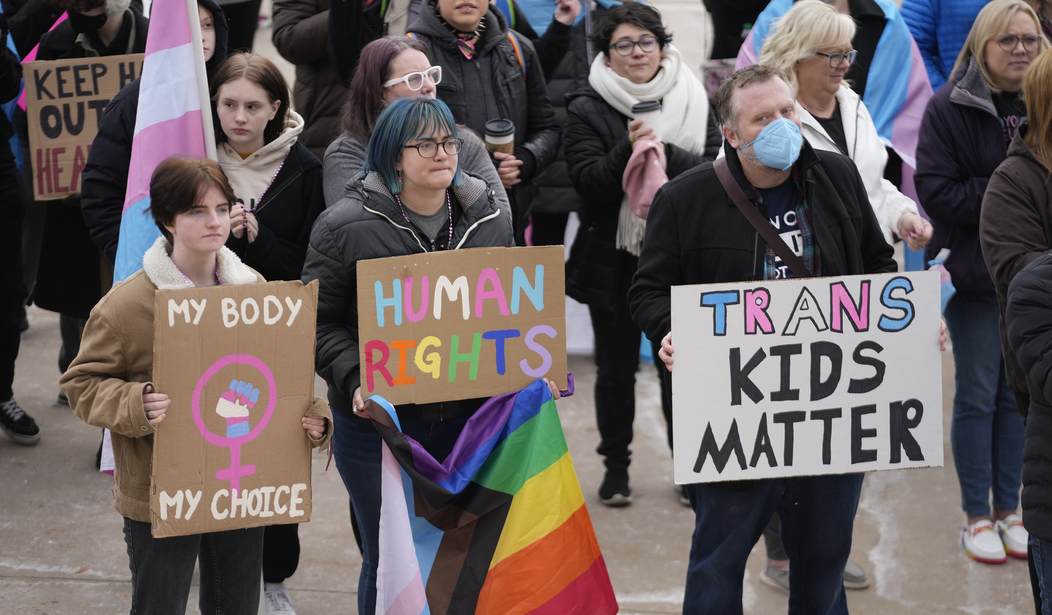Even more information has emerged showing that employing the “gender-affirming care” model for children experiencing gender dysphoria is not exactly what its proponents claim it is. Over recent years, supporters of using puberty blockers, hormones, and surgical treatments on minors have insisted ad nauseam that their arguments in support of these treatments are “based on science.”
However, another study has been published showing that “the science” being used to support “gender-affirming care” is less rigorous than proponents of the practice would like us to believe—in fact, there appears to be evidence that those conducting these studies engaged in deceptive practices to justify these treatments.
In a systematic review by the University of York, led by Dr. Hilary Cass and commissioned by England’s National Health Service (NHS), respected medical institutions have been recommending “gender-affirming care” for minors based on flawed and deceptive practices. Cass’ study ultimately motivated the United Kingdom to pull away from the “gender-affirming care” model and look for alternative ways to treat children who are confused about their gender.
The review meticulously assessed 23 international guidelines using the Appraisal of Guidelines for Research and Evaluation instrument and found serious issues in how evidence was used – or misused – to support medical transitions for young people suffering from gender dysphoria. Dr. Cass’ team discovered that these guidelines deceptively claimed to be “evidence based,” a term folks on the left have used to trick people into believing that using medical treatments to supposedly change a child’s gender is a reliable and beneficial solution.
At the heart of the matter was the rampant use of “circular referencing,” in which organizations like the Endocrine Society and the World Professional Association for Transgender Health (WPATH) base their recommendations on each other’s endorsements rather than on new research. These guidelines have repeatedly referenced each other, creating an echo chamber that gives the illusion of consensus and robust evidence.
Normally, guidelines such as these would be opened up to further scrutiny from outside. But in this case, the organizations were essentially verifying each other’s work. This malpractice has been misleading healthcare professionals and the rest of the public into supporting harmful, irreversible, and life-changing medical interventions for vulnerable children.
The Endocrine Society (ES) and the World Professional Association for Transgender Health (WPATH) published initial guidelines recommending youth medical transition in 2009 and 2012, respectively. These guidelines became foundational for many subsequent guidelines, shaping their content and recommendations despite the lack of evidence and rigor. In the Cass Review, Dr. Hilary Cass highlighted the ways in which WPATH and ES were closely interlinked, noting their mutual co-sponsorship and input into each other’s drafts. This coordinated effort suggests that WPATH and ES were colluding to grant undue credibility to their guidelines.
The corruption persisted in the formulation of national and regional guidelines by prominent organizations such as the American Psychological Association, the American Academy of Child and Adolescent Psychiatry, the American Academy of Pediatrics, and the Society for Adolescent Health and Medicine. It also extended to international guidelines from countries like Australia, Spain, Italy, and regions including Asia and the Pacific. Rather than grounding their recommendations in robust evidence, these guidelines deferred to the endorsements from the initial guidelines of WPATH and ES.
Years later, when WPATH and ES updated their guidelines, they referenced the same national and regional guidelines that had initially drawn from their recommendations. This perpetuated a cycle in which each iteration reinforced the others, each time without sufficient evidence to support the recommendations. Dr. Cass highlighted the problematic nature of this circular referencing, stating, “The circularity of this approach may explain why there has been an apparent consensus on key areas of practice despite the evidence being poor.”
The implications of these revelations are quite alarming, given the number of children who are being subjected to questionable treatment methods based on lies. Journalist Christina Buttons argues that “this systematic review sheds much-needed light on the manipulative practices hiding behind the façade of scientific endorsement.”
Buttons also explains that the researchers’ aim at the Endocrine Society and WPATH was to “enhance their own credibility through mutual referencing in the eyes of the public and other medical professionals” and noted that “this practice is highly unethical.” In so doing, they led the public “to believe in the validity and reliability of recommendations founded on weak evidence.”
Common sense already shows that using puberty blockers, hormones, and surgical treatments on children experiencing gender dysphoria is a horrible idea. Nevertheless, groups like the Endocrine Society and WPATH have managed to con the medical industry into buying into these methods using highly deceptive practices. Now, children are suffering because of their machinations.
Fortunately, we are at a point where more studies are exposing the dangers of “gender-affirming care,” which has resulted in European nations almost entirely abandoning the practice.
A Netherlands study reaffirmed what other studies found: The vast majority of children who are confused about their gender end up growing out of it by the time they become adults, without the use of harmful medical procedures. A Finnish study revealed that “gender-affirming care” actually increased the likelihood of suicides among adults who underwent these treatments as children. Another study found that at least one-third of children who go through these treatments saw their mental health deteriorate.
Progressives touting “gender-affirming care” have not bothered to discuss these studies. Indeed, they seem more intent on sweeping their findings under the rug. For these folks, it seems to be more important to push their ideology while supporting a gender industry that is generating tons of revenue for those involved instead of actually safeguarding children.













